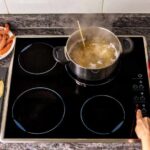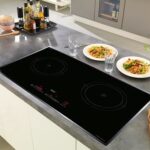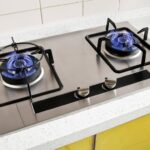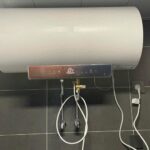Induction cooktops are becoming the primary cooking appliance in households due to their safety, convenience, and fast heating capabilities. However, not everyone knows how to use them efficiently, safely, and prolong their lifespan, including whether or not to unplug the cooktop after cooking.
Should you unplug the induction cooktop right after cooking?
The answer is no. Unplugging the induction cooktop immediately after cooking will reduce its lifespan and negatively impact the internal circuit boards and components.
Induction cooktops have high power outputs and can reach very high temperatures in a short time. Therefore, the internal fan must continuously operate to cool the components. Unplugging the cooktop immediately after use will cause the fan to stop abruptly, resulting in insufficient cooling of the internal components, reducing the lifespan of the cooktop.
To ensure safety and efficient use, it is recommended to wait for a while after cooking to allow the internal components to cool down, for the heat warning system to function, and for the cooling fan to stop operating.
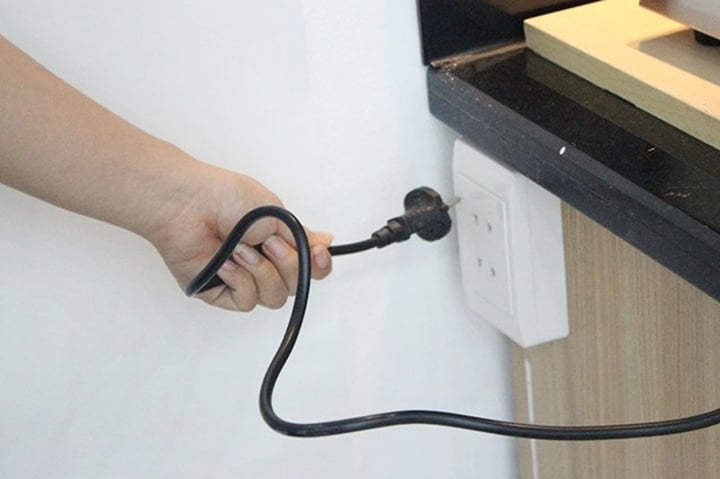 Do not unplug the induction cooktop right after cooking. (Photo: Ferroli)
Do not unplug the induction cooktop right after cooking. (Photo: Ferroli)
Unplugging the cooktop immediately may also cause the glass surface to crack, leading to burn hazards if accidentally touched. If you decide to unplug the cooktop, first turn it off and wait for 30 seconds to 1 minute to allow the cooling fan to dissipate the heat from the internal components. Ideally, wait for about 15-20 minutes after cooking for the components to cool completely.
Benefits of not unplugging the induction cooktop right after cooking
By not unplugging the induction cooktop immediately after use, you will gain the following advantages:
Improved cooling fan efficiency
Induction cooktops operate based on electromagnetic induction principles. The alternating current passing through the coil in the cooktop generates an alternating magnetic field. When you place a pot or pan with a ferromagnetic base on the cooktop, this magnetic field induces an electric current in the base, heating it directly without transferring heat through the cooktop’s surface. This results in energy efficiency, faster cooking, and safety.
After turning off the cooktop, the other components gradually cool down. The cooling fan helps dissipate heat quickly and will continue to operate for a short time after cooking. By not unplugging immediately, you allow the cooling fan to work effectively, preventing the components from overheating.
Displaying heat warnings
Some induction cooktops feature heat warning indicators. If the cooktop’s surface is still hot, it will alert you with lights or symbols on the display to remind you. This function is beneficial as it prevents accidental touches when the cooktop is still hot. If you unplug the cooktop, this warning feature will not work, increasing the risk of burns.
Enhanced durability
Sudden changes in voltage when unplugging can affect the internal electronic components, impacting the cooktop’s lifespan. Keeping the cooktop plugged in allows the components to stabilize and reduces the risk of damage.
When should you unplug the induction cooktop?
According to experts, it is not necessary to unplug the induction cooktop daily. However, in certain situations, unplugging is recommended for maximum safety:
– When not using the cooktop for extended periods: If you are going on a business trip or taking a long vacation, it is advisable to unplug the induction cooktop to prevent electrical hazards.
– During thunderstorms: On days with severe weather, especially thunderstorms, it is best to unplug the cooktop and other electrical appliances to avoid the risk of electrical surges.
– For maintenance or cleaning: Before performing any maintenance or cleaning on the induction cooktop, ensure that you have unplugged it to prevent electric shocks or damage to the appliance.
Tips for safe and efficient use of induction cooktops
– Place the cooktop in a well-ventilated area: Induction cooktops should be positioned in a spacious area to ensure optimal cooling fan performance. Avoid placing it too close to walls or other appliances, as this may restrict airflow, causing the cooktop to overheat and malfunction.
– Use appropriate cookware: During cooking, avoid using chopsticks, spoons, or metal utensils as they conduct heat quickly and may cause burns. Plastic utensils may melt.
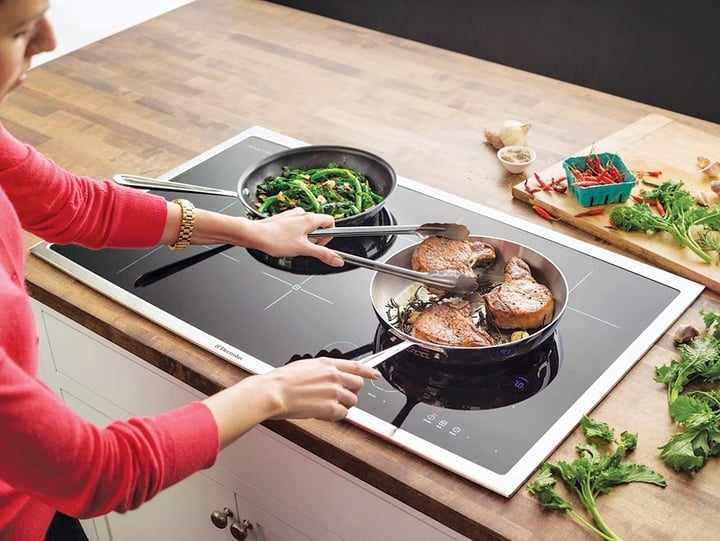 Induction cooktops are selective about the type of cookware that can be used. Not all cooking utensils are compatible. (Photo: Gertech)
Induction cooktops are selective about the type of cookware that can be used. Not all cooking utensils are compatible. (Photo: Gertech)
– Regular cleaning: The glass surface of the induction cooktop should be cleaned frequently to prevent dirt buildup, ensure cooking efficiency, and avoid scratches. Use a soft cloth and specialized cleaning solutions for induction cooktops, avoiding harsh chemicals or metal scouring pads.
– Check the power supply: Use the induction cooktop with a stable power supply, avoid overloading, and do not plug it into the same outlet as other high-power appliances.
– Adjust cooking time: Induction cooktops excel in even, stable, and fast heating. Therefore, when cooking, pay attention to the cooking time and temperature to ensure evenly cooked and delicious meals. Also, note that using the cooktop frequently at high temperatures for extended periods may lead to overload and potential cracks or explosions.
According to VTC News
The Modern Kitchen Revolution: Why More Homes Are Moving Away From Gas Stoves
Many people are wary of using gas stoves, primarily due to safety concerns. There have been instances of gas leaks and even explosions caused by improper use, which has led to a sense of apprehension among some users. While these stoves are a common fixture in many households, it’s essential to acknowledge and address these valid safety worries.
























